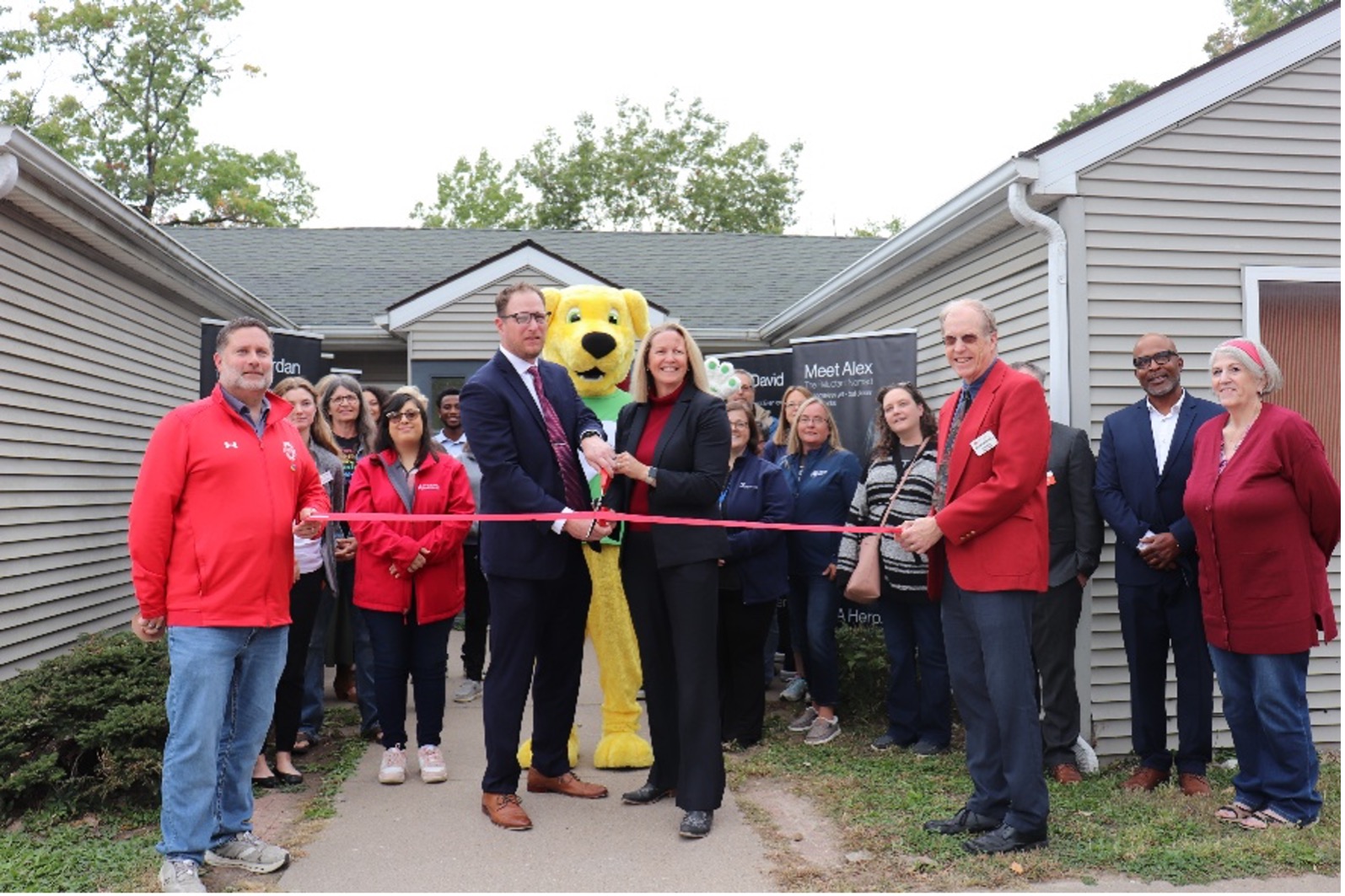Standing With Rural Communities to Improve Health Access
11/20/2025

Ribbon cutting for the Empowerment Command Center, funded by Iowa Total Care and the Centene Foundation, to help rural Iowans facing housing instability.
For Centene’s Vice President of Business Development, Paul Muraca, rural health is more than a business priority — it’s personal. His father grew up on a fig and olive farm in southern Italy, where caring for the land and the community was a way of life. “My family’s approach to life and resilience was similar to the rural healthcare leaders I worked with for almost 25 years — resourceful, innovative, and passionate about their communities,” said Muraca. “Rural healthcare leaders and providers are the safety net that our members turn to address immediate and chronic health care conditions, while balancing basic tenets of care with new, innovative approaches to achieve and maintain healthy lifestyles.”
Why Rural Health Matters
One in five Americans calls a rural community home. National Rural Health Day, observed on November 20, raises awareness of the unique healthcare challenges faced by rural communities. Muraca shares more about the obstacles they face and how Centene is responding.
Common Challenges in Rural Communities
- Fewer primary care physicians (39.8 per 100,000 people vs. 53.3 in urban areas)
- Higher uninsured and unemployment rates
- Per capita income is $9,242 lower than the U.S. average
- Long distances to reach doctors and hospitals
- Rural youth are more likely to smoke and use smokeless tobacco
- Limited high-speed internet access (53% lack broadband)
- Over half of vehicle crash fatalities happen in rural areas
- Higher risk of injury-related death, diabetes, and heart disease
- Limited access to mental health care; rural youth face double the suicide risk of urban peers
Source: NRHA About Rural Health Care, March 2025
Centene’s Commitment to Rural Health
4.6 million Centene Medicaid members (29%) live in rural counties. Centene is committed to ensuring quality, affordable care is available regardless of ZIP code.
Centene’s approach to improving rural health includes:
- Partnering with community organizations such as the National Rural Health Association, National Association of Community Health Centers (NACHC), Federally Qualified Health Centers (FQHCs), rural health clinics, rural hospitals, providers, community-based organizations, and faith-based community programs
- Supporting and expanding healthcare workforce development
- Expanding telehealth and mobile clinic access
Local Impact in Rural Communities in 2025
- Arizona Complete Health provided grants and resources to support the EMT and volunteer fire department in Fredonia, a remote Arizona community.
- Sunflower Health Plan hosted vision screenings for 200-plus rural Kansans.
- Fidelis Care awarded $130,000 in grants to healthcare providers and community-based organizations who work to increase preventive care in rural communities across New York.
- Iowa Total Care celebrated the ribbon cutting of The Empowerment Command Center to help address the needs of rural Iowans facing housing instability. The center is a portion of a two-year, $2.55 million commitment to the Central Iowa Shelter & Services by Iowa Total Care and the Centene Foundation.
“Every day, I’m inspired by the resilience and compassion of rural health leaders and the CenTeamers who support them. When we work side by side, we build healthier futures for our neighbors and strengthen the heart of our communities,” said Muraca.
Standing with rural communities means more than providing care — it means listening, partnering, and innovating together.